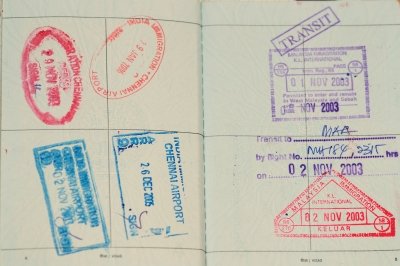Immigration translation is no doubt an important effort for any country with immigrants, as many arrive with little to no knowledge of the national language. By translating to a variety of languages, countries ease the already difficult process of immigration, lesson the sense of isolation and confusion. As a result, immigrants are likely to feel more welcomed, and be more interested in integrating linguistically into society in a positive way.
 Free image courtesy of FreeDigitalPhotos.net
Free image courtesy of FreeDigitalPhotos.net
Although exactly what is translated varies widely, in the vast majority of cases, who does the translating does not: that is, the government, usually with the massive aid of tax revenue. While many support this system—see it as a valid nationwide effort to encourage immigration and diversity—there are many who do not, especially when the effort is not as successful as it should be. Moreover, many feel that an important aspect of immigration is learning the official language(s) of the new country.
These positions considered, immigration translation becomes more than a simple question of economics; rather, it is one of national linguistic identity. On the one extreme hand, a country could nationalize one language, and make little to no effort to translate it to a variety of others—at least, using tax revenue. This wouldn’t necessary discourage immigration, but rather, that immigrants would learn the official language either before arriving, or make concentrated efforts to do so once they had arrived. The “sink or swim” method, this would have many consequences, both positive and negative, that aren’t difficult to predict.
On the other extreme hand, a country could expend massive amounts of money and effort on translating as diversely and extensively as possible. This would be highly inclusive, ostensibly allowing immigrants to live in the country without ever having to learn the official language. Granted, many immigrants live in this manner today, but the difference in this scenario would be that the language of these minority groups could, over time, rise to comparable levels of popularity as the initial “official” language(s). A positive aspect of this scenario would be a massive rise in demand for translators, at least initially. A negative aspect would be an increasing linguistic division within a nation, and widespread communication difficulties.
As a result, most nations have tried to avoid such extremes, providing some immigration translation so as to be inclusive but, ultimately, resisting sustained efforts that might threaten national language dominance.
As a translator, have you worked exclusively within such a moderate approach, or within extreme ones as well? Furthermore, how important is physical location to your work, i.e. does remote work allow a translator to escape the various pitfalls of extreme immigration translation approaches?







